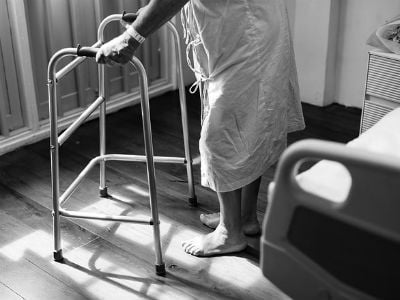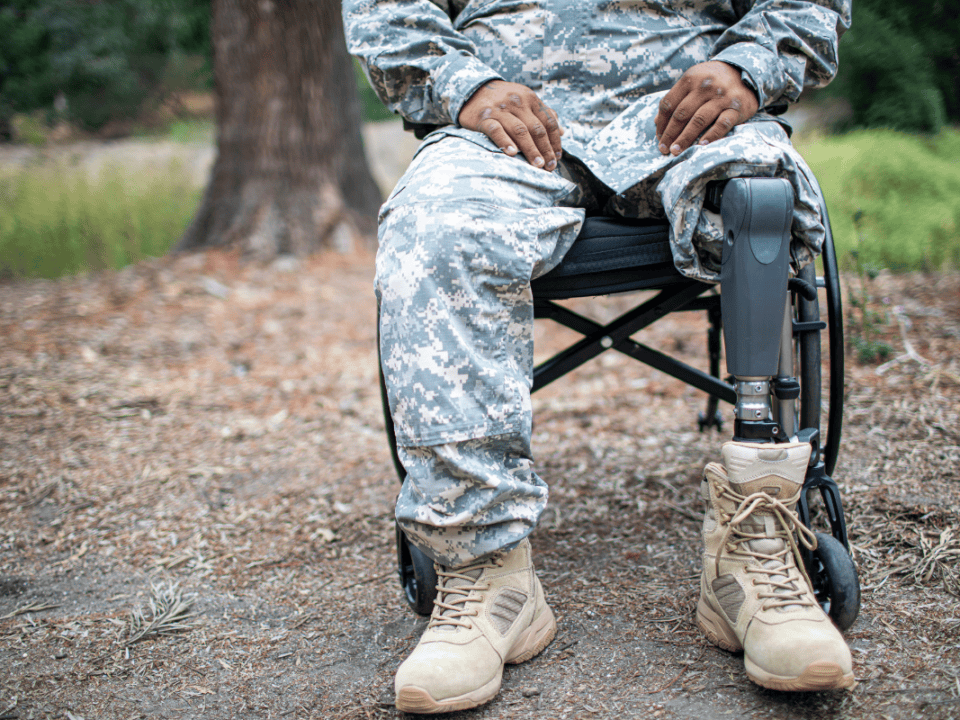 Local Columbia newspaper The State recently reported on the case of U.S. Navy Veteran Eric Walker. Mr. Walker sought care at the Dorn Veterans Hospital in Columbia, SC, while suffering from severe pains in his abdomen.
Local Columbia newspaper The State recently reported on the case of U.S. Navy Veteran Eric Walker. Mr. Walker sought care at the Dorn Veterans Hospital in Columbia, SC, while suffering from severe pains in his abdomen.
The hospital asked for a routine urine sample — that’s where the ‘routine’ part of this ER visit ends. To Walker’s shock, the hospital informed him that he had flunked their drug test and his stomach pains were caused by “excessive cocaine use” and other drug ingestion.
Medical staff at Dorn did not attempt to provide treatment for his pain and told him instead to go home and seek help for drug addiction.
Several days later, Mr. Walker was driven to Lexington Medical Center when his abdominal pain grew worse. He was diagnosed with gall stones and disease of the pancreas and gall bladder, and rushed into surgery.
Mr. Walker is now pursuing litigation against Dorn Veterans Hospital and the VA for allegedly switching his urine sample with that of another patient, causing the delay in treatment and his condition to worsen.
While Dorn is contesting his version of events, Mr. Walker’s case illustrates increasing instances of veterans alleging poor, delayed, or even outright denied care in VA-owned and operated facilities. Unfortunately, delays and denial can end in serious injury or even death for the suffering veterans and their families.
What can you do to advocate for yourself and your family members? Can you take any steps to potentially prevent medical malpractice at VA hospitals? How do you know when it’s worth pursuing a medical malpractice lawsuit against Veterans Affairs?
How Often Does Malpractice Occur?
Unfortunately, we’re not entirely sure — in June 2017, there was a noted seven percent increase in medical errors reported at VA hospitals, but an eighteen percent decrease in investigations of those events.
The Military Times noted that from 2010 to 2015, 2,111 administrative claims for malpractice were filed against Army, Navy and Air Force medical centers and hospitals, with 254 resulting in medical malpractice lawsuits against the Army and Navy. (The Air Force did not provide figures for how many claims developed into lawsuits.)
Considering that it’s estimated that the majority of veterans don’t file claims alleging negligence in the care they receive, the amount of malpractice occurring within VA-owned hospitals may be even higher than we think.
How to Advocate For Yourself and Your Family
We place a great deal of trust in our medical providers, but the incidents of medical malpractice at VA facilities suggest that it’s important to actively advocate for and protect yourself and your family members from further harm when seeking medical care.
We recommend taking a few steps that can help you to protect you and your loved ones:
- Research your medical provider. USA Today’s investigation found a shocking number of physicians knowingly hired by the VA with previous discipline for poor care or even prior malpractice suits. Take time to research your provider before you begin seeing them regularly or agree to any treatment.
- Get a second opinion. Ask for another medical provider if you become uneasy or worry that your current provider is not listening to you or doesn’t have your best interests in mind.
- Bring an advocate. It can be difficult to speak up or disagree with your doctor’s prognosis or treatment, even if it doesn’t seem right. Bring along a friend or loved one to take notes, ask questions they have that you may not remember to ask, and speak up for you if you are too if you are too sick, groggy, medicated, or intimidated to do so on your own.
- Write everything down, and ask for copies of everything else. The doctor and other medical staff should have your medical history before they take any steps for treatment, but essential information can slip through the cracks. Keep copies of every single medical bill or record of care. Maintain a “cover sheet” with the most important parts of your medical history in bullet points, like allergies to specific medications, any current diagnosed conditions or prescribed medications, dates of surgery, hospitalizations, or other important details.
- Bring prescription bottles with you. Don’t rely on your doctor just knowing what medications you’re taking. Bring your actual prescription bottles in to prevent potentially fatal medication errors.
- Ask questions about whether or not any new medications might interact with current meds or have unpleasant side effects. You deserve to know every detail possible about any medication that goes into your body.
- Mark your surgical site. While these errors are still statistically rare, there are cases of surgeries removing the wrong kidney, leg or arm, or other operational errors that can leave patients permanently affected. Ask the doctor to specifically mark up your surgical site before the date of surgery, and make notes yourself on exactly where it should occur.
- Read up on your diagnosis and treatment. It never hurts to do your own research on your condition or potentially dangerous drug combinations or other issues. Print or copy out everything you find to bring to your medical appointments in order to help you remember to ask important questions.
- Don’t be afraid to follow up. Did you make it to your car and suddenly remember a question you forgot to ask? Head back in and ask for a few more minutes, or schedule a follow-up appointment specifically to get these answers. Did your doctor prescribe a medication that you’re sure you mentioned you’ve had bad reactions to? Call to ask about it before ever taking your first dose.
Despite taking careful steps to prevent falling victim to medical malpractice, unfortunately there is still a chance you could find yourself injured or ill as a direct result of care you received — or did not receive — at VA-owned facilities.
In our next post, we’ll take a closer look at what to do after suffering medical malpractice at VA facilities and what it takes to seek justice from Veterans Affairs and the federal government.
At Bluestein Attorneys, our VA Disability team is made up of military veterans themselves, who understand the unique stress of military life. We have experience working with veterans seeking justice under the Federal Tort Claims Act and for other types of VA Disability claims. Reach us by phone at (877) 524-4675 or click the banner below to request your FREE VA Disability consultation.




